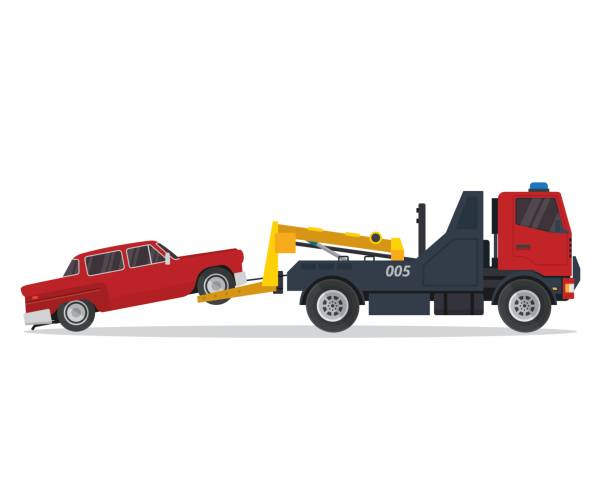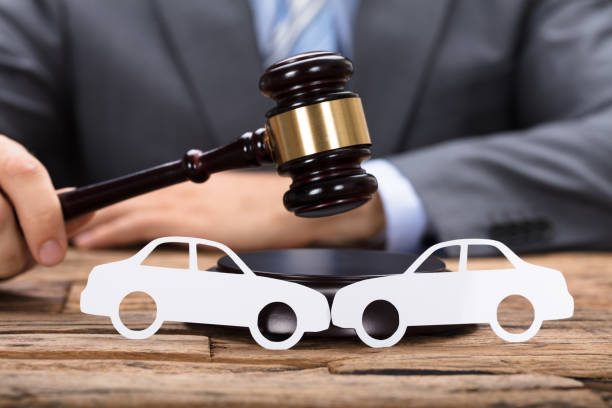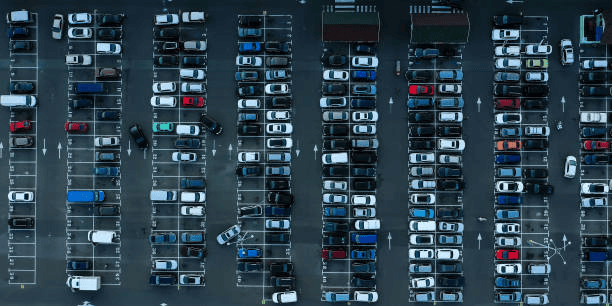Are you familiar with New South Wales’ (NSW) rules on car impound? This article will explain the basic rules and information about vehicle impoundment in NSW, Australia.
Car impound is the legal process of placing a vehicle into an impoundment lot or tow yard. This is a holding place for cars or company registered vehicles until they are placed back in the control of the owner, recycled for their metal, stripped of their parts at a wrecking yard or auctioned off for the benefit of the impounding agency.
The sound of a police siren is enough to make any driver’s heart skip a beat. But for some drivers in NSW, the sound of that siren can mean much worse: the impoundment of their car.
That’s right, in NSW, police have the power to impound your car if you commit a serious driving offence. This can include offences like:
- Driving beyond the speed limit (speeding)
- Drink driving, and
- Street racing.
If authorities had your vehicle impounded, it can be a real headache to get it back.
Serious Driving Offences NSW
Driving is a privilege, not a right. When you abuse that privilege by committing a serious driving offence, you can expect serious consequences such as car impound. When someone operates a vehicle in a way that results in, or is likely to result in, death or serious injury, that is a serious driving offence.
Serious driving offences come with harsh punishments, such as jail time, fines, and restrictions on vehicles. If you are facing a major traffic offence accusation, you must appear in court.
Here are some examples of serious driving offences that can lead to car impound:
- Negligent driving offences such as accidents that cause death or serious injury without speeding or being under the influence of alcohol or drug driving.
- Furious and reckless driving offences is knowingly or carelessly driving in a way which:
- seriously endangers other road users and community members,
- creates an obvious and serious risk of causing physical injury to other road users.
- Failing to stop and assist after an accident because there is a law in NSW that obliges a driver or rider to stop or assist when one:
- witnesses an accident causing physical injury,
- is involved in an accident or impact causing physical injury.
- Predatory and menacing driving offences such as when drivers pursue or threaten another driver with the intention of causing physical harm.
- Police pursuit offences are committed when you intentionally drive erratically or at a high speed while ignoring police requests to stop, you are engaging in a police pursuit.
- Other serious driving offences causing death or grievous bodily harm. Charges include murder, manslaughter, grievous bodily harm, or injuries caused by furious driving under the Crimes Act 1900.

Vehicle Sanctions for Vehicle Owners
There are vehicle sanctions that the NSW Police may impose upon the driver when you commit any of the above-mentioned serious driving offences. These sanctions may be:
- Number plate confiscation
- Car impound
Sanctions on vehicles often last three months. If you were prohibited from driving at the time, your car might be fined for up to six months. Even if someone other than the registered owner was behind the wheel, police can nevertheless impound the car. This covers automobiles with business registrations.
The Road Transport Act 2013 NSW
Section 239 of the Act lists the powers of the police regarding car impound in NSW. A police officer may:
- seize and take charge of your car and move it to a place determined by the Commissioner of Police;
- remove and confiscate your vehicle’s number plates and attach a number-confiscation plate to your car.
You do not have permission to operate that vehicle until you have your number plates back if the authorities took them. Driving with fake plates or without number plates carries a $3,300 maximum penalty.
Moreover, section 250 provides for the guidelines of the release of impounded vehicles and number plates:
- There may be fees payable for the movement, towage and storage of an impounded vehicle or release of number-plates. However, the Commissioner of Police may waive such fees.
- The Commissioner must make every effort to ensure that any impounded motor vehicle is accessible for collection by the person who is entitled to it as soon as that person is entitled to it.
- Unless all moving, towing, and storage fees for the impounded car have been paid in full, the Commissioner is not compelled to release any motor vehicle under this section or to release any vehicle in line with an order of the Local Court.
- Any applicant to whom a vehicle is released is required to confirm in writing that they have received the vehicle from the Commissioner.
- Transport NSW must make every effort to have number plates available for collection by the legally entitled person as soon as that person becomes entitled to them or to issue replacement number plates if they were damaged when removed.
NSW Car Impound: What Should You Do?
If you have been given a vehicle sanction of car impound, you can ask the court for your car or your license plates before the confiscation time is up.
You must convince the judge that you have a good reason to use the car. The court will consider if it is highly possible that:
- you or another person will use the vehicle to commit a serious driving offence again; or
- someone (other than the registered owner) would suffer a great deal of difficulty if the court will not release the car.
You can appeal the sanction but the court cannot release the car or its number plate earlier than five (5) working days after the issuance of the sanction.
If you’ve done a serious driving offence repeatedly, you risk losing possession of your car. You will have to turn the car over to the police or the court as a result, as it will no longer be your property. Worst, your car might be auctioned in some circumstances to recoup the costs of storage and collection. In other instances, Transport NSW might receive it to use in crash tests.

Need Help With NSW Car Impound?
Talk to a traffic offence lawyer about your NSW car impound problem. JB Solicitors can assist you with the following:
- Challenging the legality of the impoundment: If you believe that your car was impounded illegally or if the police impound your car, we can help you challenge the legality of the impoundment. This may involve arguing that the police or senior police officer did not have reasonable grounds to impound your car, or that they did not conduct the impoundment process properly.
- Negotiating an early release of your car: In some cases, we can negotiate a release of your car without you having to go to court. We can argue that you are not a flight risk, or that you have already taken steps to address the underlying issue that led to the impoundment.
- Representing you in court: If your case goes to court, we can represent you and fight for your rights. We can argue that you are not guilty of the offence that led to the impoundment, or that the court should reduce the penalty.
- Helping you to get your car back: Once your case is over, we can assist you to get your car back. You may pay the impoundment fee, or have your vehicle towed to a different location.
Contact us now if you had your car impounded.
